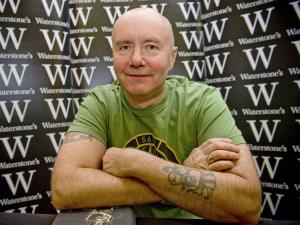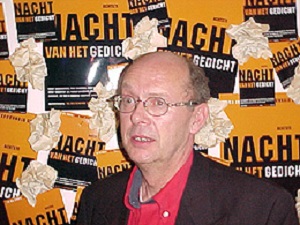De Schotse schrijver Irvine Welsh werd geboren op 27 september 1958 in Leith, Edinburgh. Zie ook mijn blog van 27 september 2010 en eveneens alle tags voor Irvine Welsh op dit blog.
Uit: Filth
“We wait and think and doubt and hate. How does it make you feel? The overwhelming feeling is rage. We hate ourself for being unable to be other than what we are. Unable to be better. We feel rage. The feelings must be followed. It doesn’t matter whether you’re an ideologue or a sensualist, you follow the stimuli thinking that they’re your signposts to the promised land. But they are nothing of the kind. What they are is rocks to navigate the past, each on your brush against, ripping you a little more open and they are always more on the horizon. But you can’t face up to the that, so you force yourself to believe the bullshit of those you instinctively know are liars and you repeat those lies to yourself and to others, hoping that by repeating them often and fervently enough you’ll attain the godlike status we accord those who tell the lies most frequently and most passionately. But you never do, and even if you could, you wouldn’t value it, you’d realise that nobody believes in heroes any more. We know that they only want to sell us something we don’t really want and keep from us what we really do need. Maybe that’s a good thing. Maybe we’re getting in touch with our condition at last. It’s horrible how we always die alone, but no worse than living alone.”
(…)
“All I can think about is that boy’s skull, bashed in, the way his head was caved in and how it wasn’t like a heid at all, just like a broken silly puppet face, about how when you destroy something, when you brutalise it, it always looks warped and disfigured and slightly unreal and unhuman and that’s what makes it easier for you to go on brutalising it, go on fucking it and hurting it and mashing until you’ve destroyed it completely, proving that destruction is natural in the human spirit, that nature has devices to enable us to destroy, to make it easier for us; a way of making righteous people who want to act do things without the fear of consequence, a way of making us less than human, as we break the laws . .”

Irvine Welsh (Edinburg, 27 september 1958)

